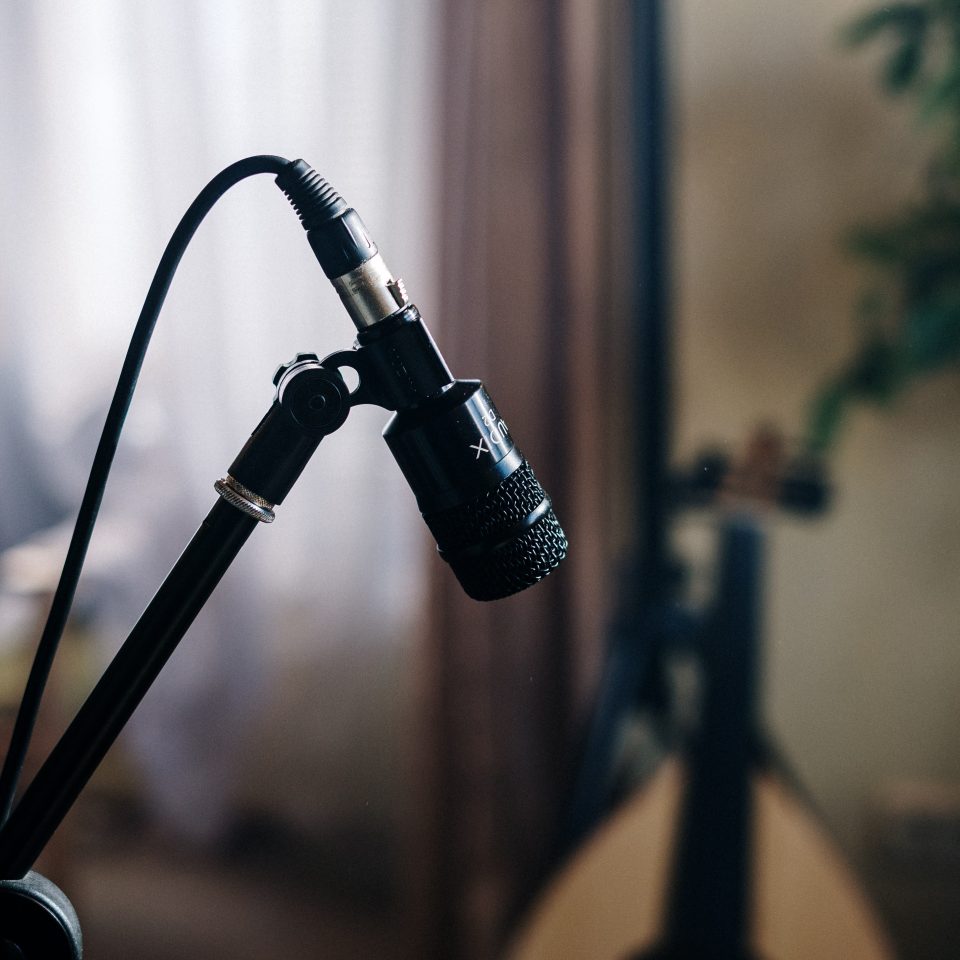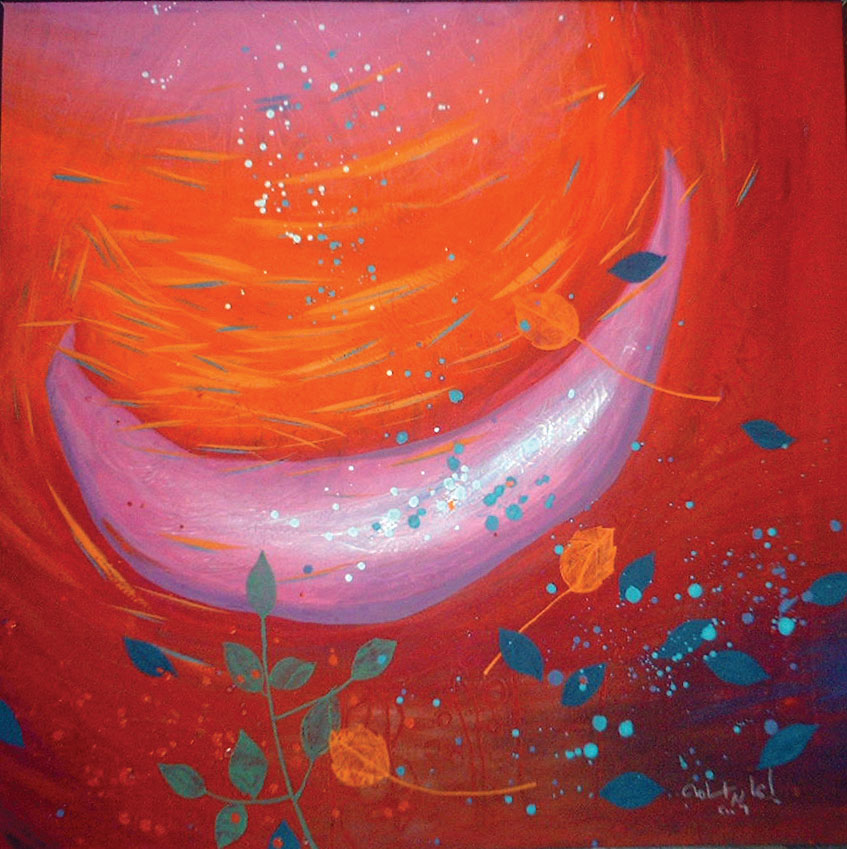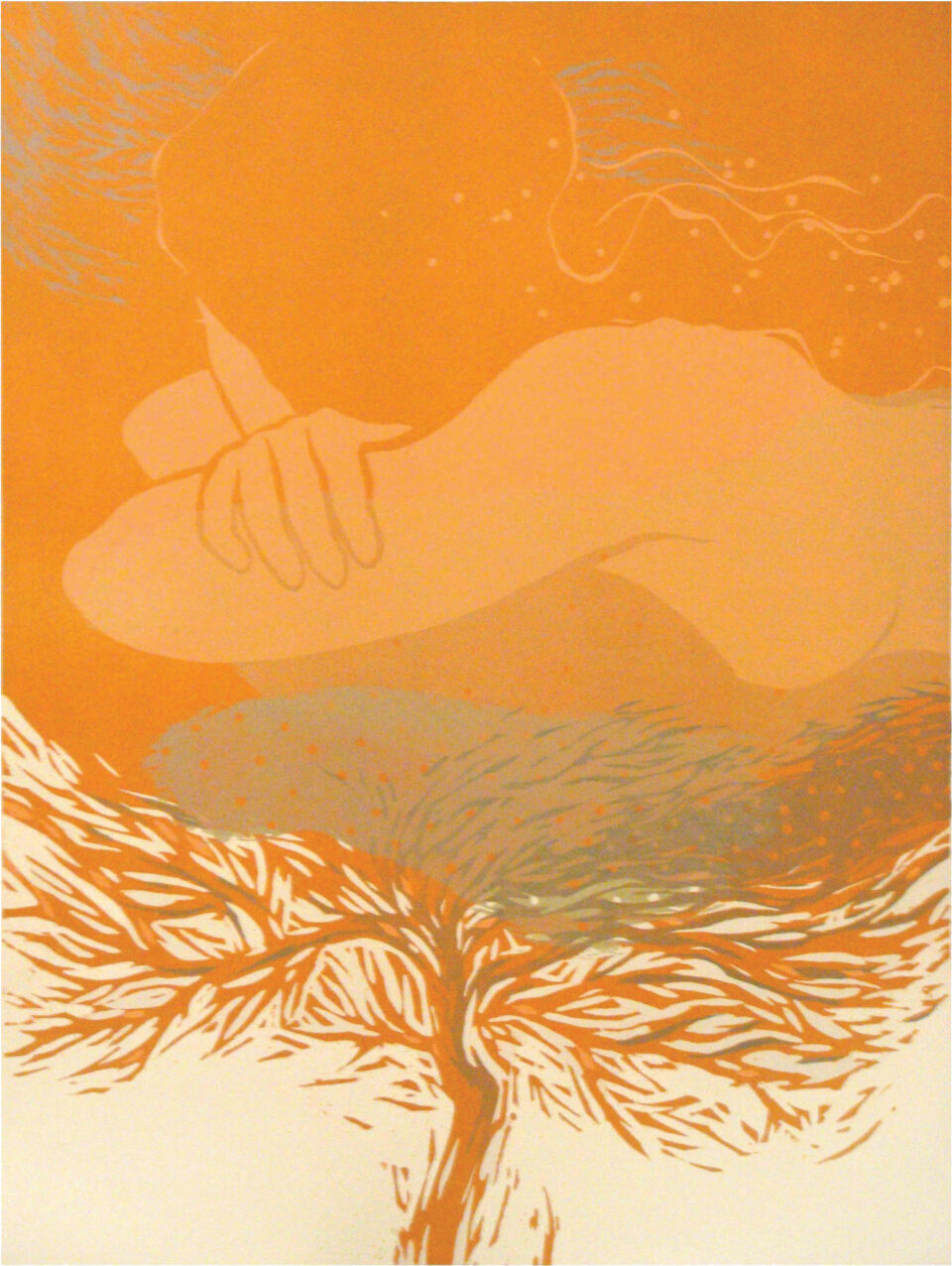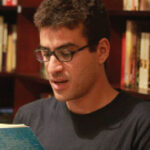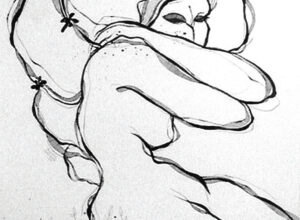“Just imagine it’s a camera and point it towards everything you see or hear. Be gentle.”
Translated by William Barnes
I was still new to the city, still dazzled by its lights, mazes, and the preparations undertaken by its women to enter into ambiguous relationships. I had gotten a temporary job as a trainee at one of the local radio stations. My first task was to go to one of the lakes surrounding the city and capture the background sound of people swimming, listening to music, and clinking their beer glasses together. The editor would use it as background for news on the intense heatwave attacking the city. He put the thin, black microphone in my hand, saying, “Just imagine it’s a camera and point it towards everything you see or hear. Be gentle. It’s a very sensitive machine.”
When I returned to the building—drenched in sweat, my wet clothes pasted to my body—I went straight to the cafeteria. I needed a big bottle of fizzy water.
I found the place empty except for a young man. Perhaps he was older than me by two or three years. He sat by himself at one of the tables in the far corner of the room. I wasn’t certain, but it occurred to me that this wasn’t the first time that I’d seen him sitting there at lunchtime—always by himself. I decided to join him.
I greeted him and sat down. He raised his head slowly and looked at me, but he didn’t respond to the greeting. He had a strong build and thick, black hair saturated with white bristles. The pale color of his face and his half-closed eyes surprised me, as if he was stuck between states of waking and sleeping. It seemed to me that he was one of those young men who lived life at maximum speed and grew old far before his time.
I said to myself, “So, then, perhaps it’s best if we don’t talk. Actually, I don’t need to listen to depressing thoughts from this young man who strayed. I’ll just have my drink and get back to work.”
I spread out the microphone and the recorder in front of me, and I turned the plastic bottle cap until it hissed like a snake. Suddenly he said, “Could I?” pointing towards the microphone lying on the table. I turned my head towards him. His eyes were wide-set and bore a hungry, anxious look, like that of a former addict in a moment of temptation. Hesitating, I nodded my head. He took the microphone, like someone caressing a small child between his arms. He tested its weight, feeling its metal body and the small spongy piece on top.
“It’s a really nice machine, isn’t it?”
“For sure,” I said, “Although I’ve only used it once.”
“It’s a stereo microphone. Very sensitive. It can capture the most precise sounds from hundreds of meters away.” Then, sorrow returned to his face. He said, “This machine was my best friend a long time ago…until…it’s a long story. Do you want to hear it?”
I wasn’t completely certain. Perhaps I was a little hasty to agree.
“The story begins,” he said, “with my first big journalism assignment—almost a year after I got to this city. At the time, I was about your age. I won’t hide it—I didn’t come here purely of my own free will. I came to flee an ill-fated love affair that had knocked me off my feet. Anyway, it wasn’t long before I collected myself and got back to life. At that time, the radio station asked me to prepare an audio collage of the city. Because I hadn’t yet found a real opportunity to get to know my new neighborhood, I agreed with unusual enthusiasm and curiosity. I spent a full week wandering around, armed with the microphone and recorder. I cut across the city east to west, north to south. I recorded on cassette tapes every sound that came my way. Sometimes, I used to stand in a place buzzing with life and close my eyes, listening to the sounds approaching and receding from every direction. Or I would leave a microphone in a place that couldn’t be seen for an hour or two. I was fired up with excitement for the surprises that I would surely find on the tapes when the deadline came for my recordings. I spent another week going over the recordings—nearly ten hours of raw audio—to choose the best one.”
“This is where I heard her laugh. I thought, in the beginning, that I was hallucinating. That it was a ghost of the past that had returned to hound me again. The laugh was long and drawn-out, like a sharp whistle, and it slowed to choppy bursts before ending. Some of my friends, when they used to try to agitate me, would compare it to the bleating of a mountain goat. I thought I would never forget that laugh…”
His final words piqued my interest. After I listened to him, half-focusing on what he was saying just to be polite, I said, “Was that your former girlfriend?”
“Yes. I heard her voice clearly in the background and not at just one point, but rather at three different ones. So she too had found her way to the city. I tried to ignore it in the beginning—but don’t you agree that an incident like this isn’t coincidence, but fate? Especially since, when I bid her farewell, I didn’t leave an address or any way to communicate with me. Then she came to my city and moved around in the same circles as I did, but we missed that fateful encounter three times. What does all of that mean?”
At that point, he had my full attention. “What a nice surprise,” I thought to myself, “There are still people in this world who believe that love is fate!” I wanted to know more. “What happened?” I asked, “Did you come across her in the end?”
He looked at me scornfully, saying, “You seem like you’re new to this city. Do you know how many reports are filled for missing persons, dogs, cats, and birds every day in the police stations? Most of them are never found. You’re asking me if we met one last time in the end? Yes, that happened. But that was after I spent a full year searching for her. I listened to the recordings that had captured her voice time and again. Sifting through the peripheral sounds to determine the location from which it was recorded. In one of them, I heard the whining of the tramcar in the background. When it enters a sharp turn, it slows down, and its metal brakes rattle. At another location, there was a very faint voice, but despite that I was able to determine its essence: It was the sound of a shawarma salesman as he clanked his large spoon in the metal bowls filled with different salads. Finally, there was a recording of one of the bars. But again, do you know how many turns and tracks there are for the tram? How many places and salesmen and taverns there are in this city? A year passed. I spent it drawing an audio-based map for every street and neighborhood—but without any success.”
“But how did you stumble on her?”
“I didn’t stumble on her. She stumbled on me. Finally, after more than two years, what I’d feared this whole time happened: I found her suddenly standing outside my door. She asked me for forgiveness; to come back to her. Despite all my attempts, I wasn’t able to avoid this moment. I had hoped to find her before she found me so I could observe her from a distance; find her telephone number or address, so I could send her a message to go back to where she came from. Because this city—despite its immensity—isn’t big enough for the two of us. But I failed. I was forced, again, to stand in front of her—face to face—shake her cold hand, listen to her weeping and to her laughter, which sounded like a goat amongst mountain peaks.
